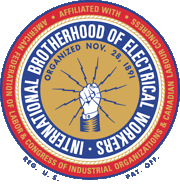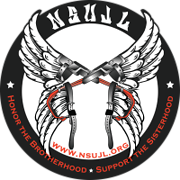Feed items
Source: GRIID
IBEW President Edwin D. Hill Lauds President Obamaenrsquo;s Energy Department Pick
In his State of the Union address, President Barack Obama joined a growing chorus of voices demanding that the national minimum wage be raised. Tuesday, Senator Tom Harkin (D-IA) and Representative George Miller (D-Calif.) announced they will introduce the Fair Minimum Wage Act of 2013.
Before a packed crowd at AFL-CIO headquarters in Washington, D.C., Nobel-Prize winning economist Paul Krugman said the way to ease the economic crisis in the United States is to create more jobs through increased public investment, raising wages and restoring workers’ ability to bargain collectively. Austerity policies are the last thing we should be doing. The event was part of AFL-CIO's Book Club series. Krugman discussed major themes in his book End This Depression Now!, which was just released in paperback.
Last Sunday, taxi drivers employed at Yellow-Checker-Star Transportation in Las Vegas authorized a strike, triggered by what they say are the company’s unfair labor practices by refusing to provide the union with information relative to collective bargaining. There are 1,703 drivers in the bargaining unit.Industrial, Technical and Professional Employees (ITPEU) represents the taxi drivers and is an affiliate of the Office and Professional Employees (OPEIU). Unfair labor practice charges were filed by ITPEU/OPEIU Local 4873 on Friday, March 1.
What should the president do now?Push to repeal the sequester (a reconciliation bill in the Senate would allow repeal with 51 votes, thereby putting pressure on House Republicans) and replace it with a “Build America’s Future” Act that would close tax loopholes used by the wealthy, end corporate welfare, impose a small (1/10 of 1%) tax on financial transactions and reduce the size of the military.
Women make up more than 40.5% of the workforce worldwide, according to the most recent data by the International Labor Organization. But their labor has not resulted in a similar level in financial well-being.
Far from it.
According to the Center for Economic and Policy Research, more than 40 million Americans work in jobs where they have no access to paid sick days. In addition to the potential loss of wages and jobs for working families, the lack of paid sick days forces many people to go to work when they are contagious and get co-workers and customers sick and decreases productivity for workers who show up unable to perform to their normal level of ability. More and more cities and states are recognizing the realities of the damage having a workforce without paid sick leave does to workers and to the economy.
The AFL-CIO supports the nomination of Caitlin Halligan to the U.S. Court of Appeals for the District of Columbia Circuit and urges the Senate to support cloture and to vote for her confirmation. As President Obama's nominee for the appeals court, Halligan has an impressive record in public service. Halligan served as the solicitor general for the state of New York and as general counsel for the New York County District Attorney’s office. She has garnered broad support, ranging from law enforcement groups, appellate advocates and women’s bar associations.
“Free trade agreements.” Many union members and other workers might tell you that so-called FTAs (of which NAFTA—the North American Free Trade Agreement—is the most well-known) haven’t been effective at creating jobs or raising standards of living—and they’d be right. But what are these FTAs, really? Well, first of all, “free trade agreements” are only somewhat about trade and have very little to do with making it “free.” At least if we are talking about U.S.-style trade agreements since 1993, when NAFTA went into effect.





